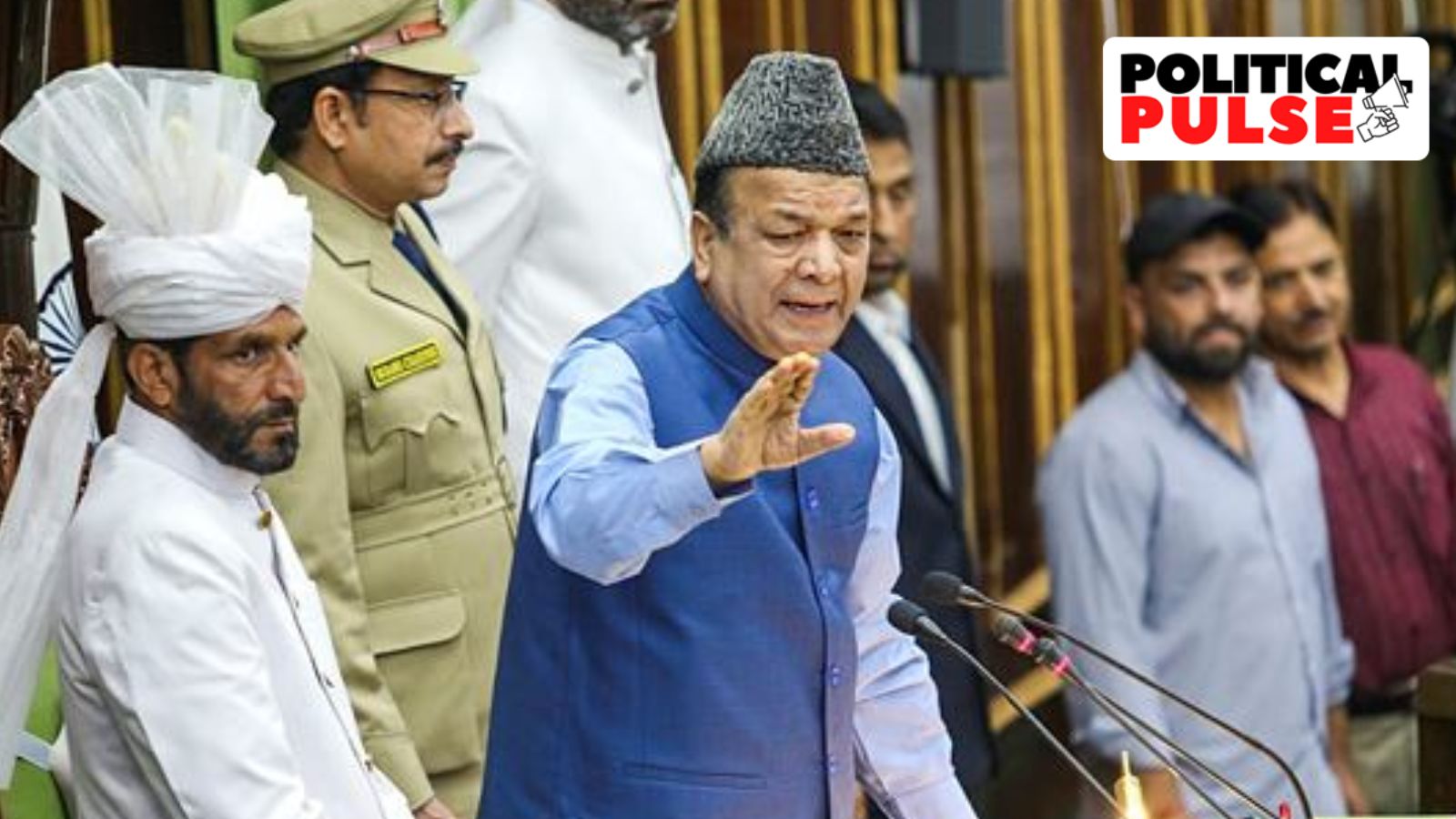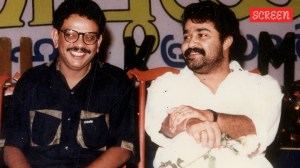Abdul Rahim Rather is a veteran of many a political battle in Kashmir. But the one he is at the heart of now, as the Speaker of the Jammu and Kashmir Assembly, is unprecedented, with both the Treasury and Opposition Benches seemingly aligned against him.

And that issues potentially embarrassing for the Omar Abdullah government are kept out of the House – including the Waqf Act, private member Bills seeking an alcohol ban, an ownership of land legislation, and multiple Bills seeking restoration of statehood to J&K.
Speaking to The Indian Express, Rather said he felt pained at the accusations and at “fingers being pointed at my integrity” over denial of a discussion on the Waqf Act in the Assembly. He had gone over his actions and remained confident that he had not done anything wrong, Rather said. “I thank God that whatever decisions I have taken in my life, I have been taken after a lot of thinking and not in haste.”
Adding that he had only gone by the Assembly rules, the Speaker said: “Not only this House, but the entire country is looking at me. We shall not do anything that may result in humiliation and give anyone a chance to say that legal or constitutional provisions are not being followed.”
On the protests against him, he said: “Members should respect the Speaker… I have regards for all the MLAs irrespective of their party affiliation.”
One of the most senior members of the ruling National Conference (NC), Rather has been associated with the party since the times of its founder Sheikh Mohammad Abdullah.
Story continues below this ad
A law graduate from Aligarh Muslim University, the 81-year-old was elected for the first time to the Assembly in 1977 from his native Charar-e-Sharif seat, and represented it for six consecutive terms. In 2014, he suffered his first loss from the seat when the Peoples Democratic Party’s Ghulam Nabi Lone defeated him by over 5,000 votes. Last year, in the first elections held after that loss and after the abrogation of Article 370, Rather wrested the constituency back, defeating Lone.
Given his seniority, and his two previous stints as Finance Minister, Rather was expected to be made a minister. However, Omar could only accommodate nine people in his Cabinet, and had the sentiments of other senior names such as Ali Mohammad Sagar and Mubarak Gul to consider, and so Rather could not find a place.
The Speaker’s post was seen as a reward for Rather’s loyalty. Given his legislative experience, it was expected that the 81-year-old would be able to run the Assembly smoothly through any rough moments arising out of the complexity of J&K’s relationship with the Centre.
But Rather’s refusal to admit the Waqf motion, moved by the NC first on Monday and promptly rejected, hasn’t been his first brush with controversy in his new role.
Story continues below this ad
From the first day of the Assembly, he has drawn Opposition fire for not allowing adjournment motions, resolutions and Bills.
On Monday and Tuesday, Rather rejected the adjournment motion on the Waqf Act saying the matter was sub-judice, and that it did not concern the state government. The Opposition contested both the arguments, saying that petitions against the Waqf Act were yet to be admitted by the Supreme Court, and that earlier a Bill against the new reservation policy was taken up for consideration despite a case in court.
The Speaker also seems on thin ice on the claim that the Waqf matter could not be taken up as it did not concern the state government. “You cannot undo what Parliament has done,” Rather said Tuesday. Apart from the Opposition, Deputy CM Surinder Choudhary contested this, saying: “This government is chosen by the people. The members have been elected by the people. If it (the Waqf issue) concerns the members, it concerns the government too.”

































